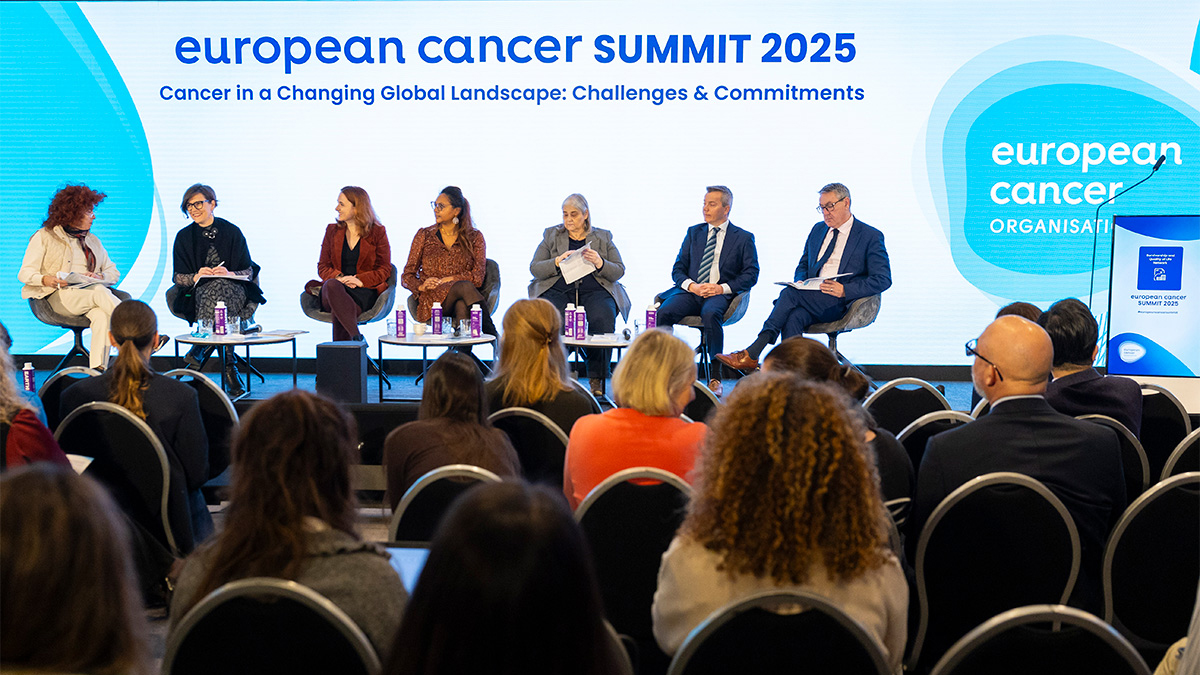Survivorship and Quality of Life Network
Contact the NetworkThis network promotes cancer patients’ well-being, guiding EU projects and its own initiatives to support survivors’ real needs. It champions efforts such as the ‘Right to Be Forgotten’ and European Cancer Survivorship Day, working to eliminate post-treatment discrimination and improve life quality across Europe.
The network works closely with the Inequalities Network to ensure its initiatives are inclusive across Europe.
The Survivorship & Quality of Life Network is presently focused on:
- Addressing the physical, psychological, social and economic impacts of cancer and its treatment;
- Strengthening recognition and support for the specific needs of cancer survivors in policy and practice;
- Advancing the implementation of the Right to be Forgotten across Europe to end financial discrimination against cancer survivors;
- Connecting cancer survivorship and quality of life priorities to wider EU policy files, including Disability Strategies and the Anti-Poverty Strategy;
- Advocating for the harmonisation and standardisation of quality-of-life measurement tools withing health system and across the EU.
European Cancer Summit: Watch the 2025 Survivorship & Quality of Life Session - Cancer Survivorship and Quality of Life: Is the EU Doing Enough?
The Right to Be Forgotten
To ensure that cancer survivors do not face financial discrimination as they move on with their lives, we are working to ensure the European Union and Member States fully implement the 'right to be forgotten' laws across the EU.
Read more about this important issue:
- ‘Time to Accelerate: The Right to be Forgotten’
- Cancer survivors deserve better: Fresh call to new European Commission on a “Right to be Forgotten”
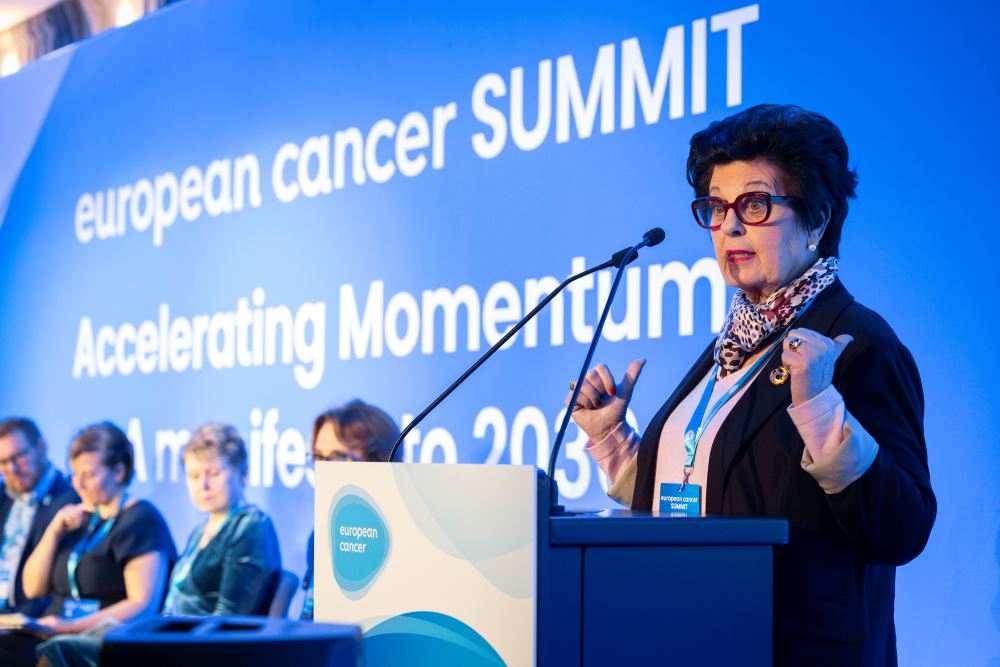 |
Françoise Meunier, founder of Ending Discrimination against Cancer Survivors, speaking in 2023.
Time to Accelerate: Together Against Cancer
Survivorship and quality of life are integral to the European Cancer Roadmap for 2030, entitled ‘Time to Accelerate’. The roadmap includes recommendations for future of EU cancer policy under the next European Commission 2024-2029, with an emphasis on refreshing, expanding, and completing Europe’s Beating Cancer Plan, Initiatives include:
- a legal right to be forgotten for European cancer survivors;
- a European Cancer Survivorship Day;
- better collection, analysis, and response to survivorship data;
- promoting EU flagship projects to support cancer survivors;
- new European standards and guidelines for planning survivorship care;
- ensuring new EU pharmaceutical legislation responds to the needs of Europe’s 20 million cancer survivors;
- rehabilitation of cancer survivors, including reintegration into the workplace
- fertility preservation;and
- improving the policy responses to patient co-morbidities and complications.
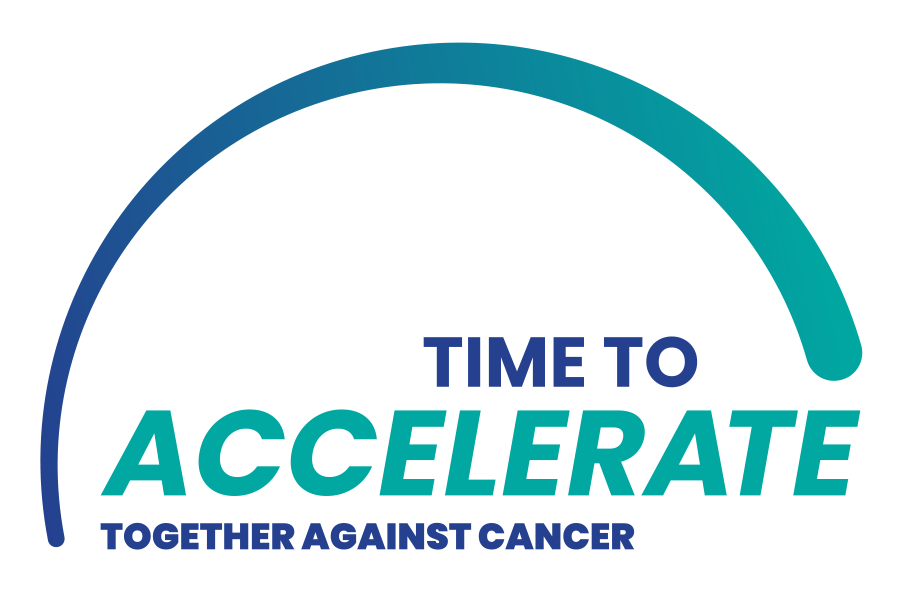 |
Read more about the campaign here.
smartCARE: Improving Cancer Survivors’ Quality of Life
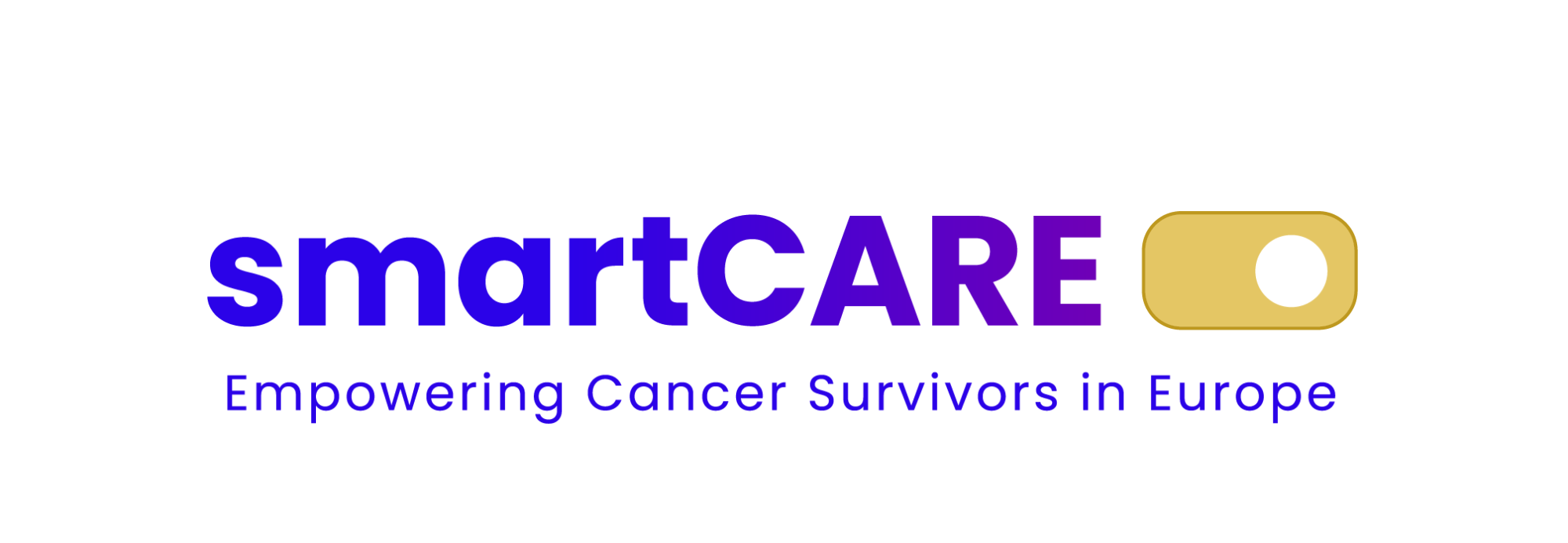 |
The Survivorship and Quality of Life Network guides several of ECO’s EU-funded projects to ensure they address actual needs of both cancer patients and survivors.
An important such project, smartCARE, developed the ‘Cancer Survivor Smart Card’. This digital tool was designed to reduce the communication gap that often exists between survivors and providers of health and social care, thereby empowering cancer survivors and enhancing their quality of life.
ECO coordinated this EU Project under the EU4Health Programme 2021-2027, focused on sustainability and user needs.
Read more here.
You can also find information on ECO’s Survivorship and Quality of Life EU projects here.
Additional Activities
The many reports and responses from this network include:
- Free from Cancer: Achieving Quality of Life for All Cancer Patients and Survivors
- Making Hope Reality: Action on Treatment and Care for Metastatic Cancer Patients
- The Use of Patient-Reported Outcome Measures in European Oncology
- European Parliament's Report on Mental Health
- ECO Responds to European Commission Consultation on Disability and Parking Cards
Promoting Key Rights of Cancer Patients and Survivors
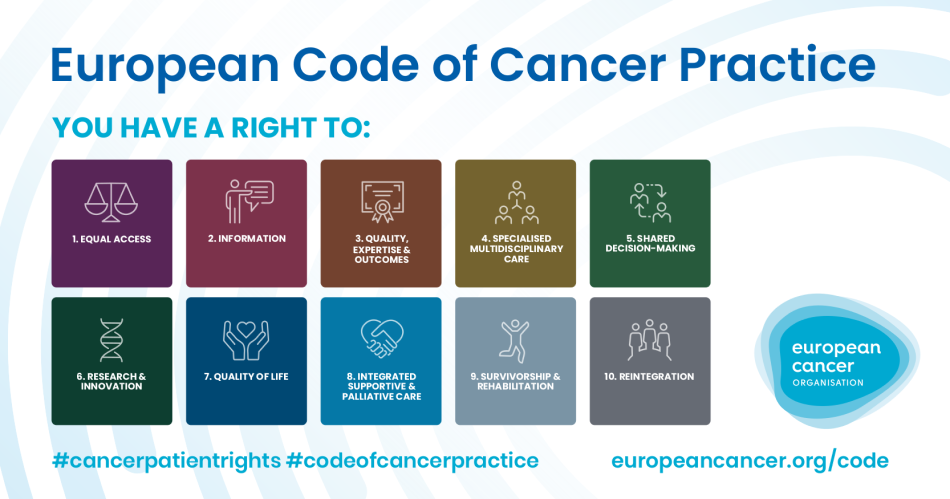 |
The Network is aligned with the European Code of Cancer Practice, produced by a team of cancer patients, patient advocates and cancer professionals, and launched in October 2020. It sets out a series of 10 key overarching rights, and in particular signposts what patients should expect from their health system to achieve the best possible outcomes.
Background
The battle against cancer is wide ranging and must include:
- a strong fight against the discrimination that too many cancer patients and survivors encounter; and
- a relentless focus on addressing the many quality-of-life issues after a cancer diagnosis, such as supportive and palliative care (psycho-social and drug-related) as well as the lingering stigma and fear surrounding cancer.
Our Network on Survivorship and Quality of Life, along with its chair, Luzia Travado, convene, collaborate and coordinate on these topics and more.
Survivorship and Quality of Life represent a dedicated pillar of Europe’s Beating Cancer Plan. It brings together a wide range of experts and stakeholders from our Member Societies, Patient Advisory Committee, Community 365, and external organisations. It promotes opportunities for improving health systems and addressing survivorship and quality-of-life challenges faced by cancer patients, their carers, partners and families.
To learn more or to support our work, please contact us This email address is being protected from spambots. You need JavaScript enabled to view it. .


